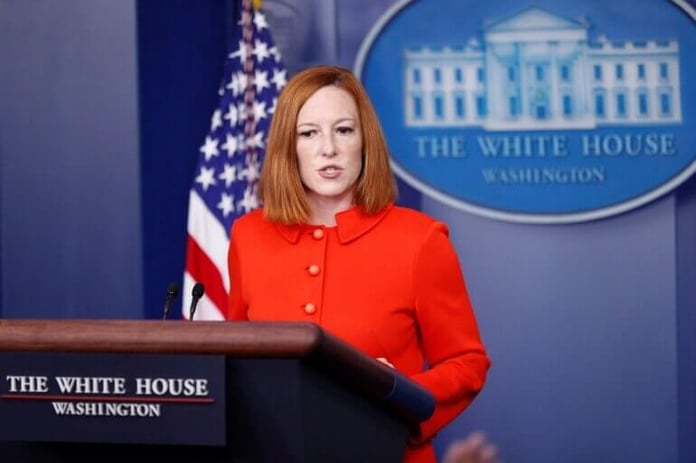
The US administration has said that President Joe Biden still believes that a diplomatic path to return to the Iran nuclear deal is the best option. On the other hand, Israeli Defense Minister Benny Gantz revealed that Tel Aviv had accepted the agreement with conditions, pointing to the preparation of a plan that includes the use of force against Tehran.
White House spokeswoman Jen Psaki said returning to the agreement restores the international community’s ability to monitor Iran’s nuclear program, adding that the diplomatic track is the best way forward on Iran.
She stated that returning to the period of time when we were familiar with Iran’s nuclear capabilities, is the ideal step, so that we can work with our international partners to hold it accountable, she says.
The acting US representative to the International Atomic Energy Agency, Louis Bono, had urged Iran to return to nuclear negotiations without delay, and to refrain from further escalation over its nuclear program.
Bono said – in a speech before the IAEA Board of Governors meeting in Vienna – that Washington is ready to lift all sanctions incompatible with the nuclear agreement, if Iran resumes compliance with all its obligations under the agreement, and added that the opportunity for full, mutual compliance with the agreement will not last forever.
For his part, Iran’s delegate to the International Atomic Energy Agency, Kazem Gharibabadi, called on the United States to effectively lift the sanctions on his country, and explained that without achieving this condition, Iran cannot be asked to return to negotiations.
He stated that the talks began in April in Vienna, but they are suspended today between Iran and the five major powers that are still signatories to the international agreement on the Iranian nuclear file, in an attempt to make way for the United States to return to it.
This agreement – concluded in 2015 – provides for the easing of sanctions on Tehran in return for its pledge not to possess an atomic weapon, and to significantly reduce its nuclear program, which was placed under the supervision of the United Nations. But the West accuses Tehran of gradually abandoning most of its commitments after the unilateral withdrawal of the United States from it in 2018.
Israel agrees, but with conditions
On the other hand, Foreign Policy magazine quoted Israeli Defense Minister Benny Gantz as saying that Israel can live with a return to the nuclear agreement with Iran, but with conditions.
Gantz stressed that Israel is ready to accept the return of Western powers to the Iran nuclear deal, but if negotiations with Tehran fail, the United States must take a serious step toward Iran.
Gantz added that Israeli officials expect that the alternative US plan will include broad economic sanctions against Iran.
He revealed that Israeli parties are putting pressure on the US administration to prepare a plan that includes resorting to the use of force against Iran. He also hinted that Israel may have a third plan that involves military action.











